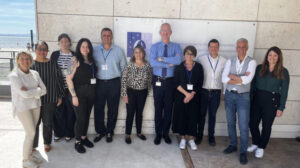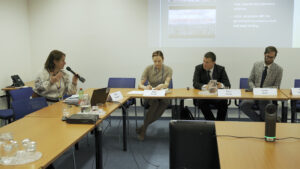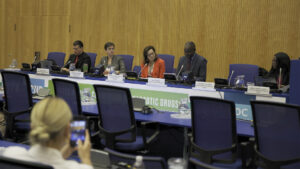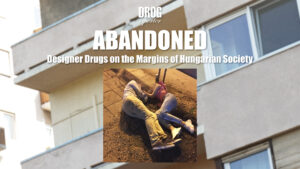It’s a well-known phenomenon in most western countries, that the media tends to try to conform to expectations implicit in the drug prohibition approach. Read what is HCLUs solution to this issue.
These kind of a media reports frequently lead to the distribution of exaggerated, biased, and misleading information which discriminates against drug users and marginalizes the most vulnerable groups. Furthermore, misinformation on drugs issues can result in dangerous drug consuming practices and disproportionate reactions. In view of this unwelcome situation, we at the Hungarian Civil Liberties Union (HCLU) decided to start a subprogram as part of our drug policy program, with the aim of raising awareness among media workers and media consumers. Our aim is to facilitate the distribution of factual, science-based, unbiased information related to drug policies and drug use.
At the beginning of 2005, the HCLU started the new program under the name, 'Mediamonitor'. As the name suggests, the program monitors the different types of media (eg: written, news programmes, TV shows etc.) regarding their approach towards drugs issues and the quality of the information provided . Our reactions tend to take two main forms: First, we write an article about the problematic media program, highlighting the errors and providing easily-understood explanations, grounded in factual, science-based information for the readers. After drafting the article, we get in touch with the given media editorial department, sending them our article as a reader’s letter in an email which briefly describes the aims of the Mediamonitor program. (We also urge our readers to send a 'letter to the editor', with our article as an attachment). Finally, we offer our help for the future in providing factual information about drugs and drug policies.
In previous years, the Mediamonitor Program has achieved a number of goals and been acknowledged for its work. In 2007, it was honored to be named one of the twelve best innovative and creative social programs, at the SozialMarie competition in Vienna.
Our critical thoughts were taken on board in an episode of a well-known documentary fact-finding series on Hungary’s most viewed channel in 2008. It was a major feather in our cap when, after our criticisms were sent to the television's editorial department, they asked us to act as their advisor on their forthcoming program dealing with drug-related issues.
Mediamonitor has several times caused editors to amend articles, or to publish a follow-up text reflecting on the errors made. The program was invited to the International Day against Drug Abuse and to an open discussion of the National Conciliation Forum on Drugs, to give a presentation on its methods and achievements.
Last year, after reading our objective criticisms, a leading Hungarian medical website requested our cooperation on future drug-related issues. This lead to the amendment of all their articles in the field of drugs and addiction.
Despite our successes and achievements in 2012, we can still see a lot of work ahead of us, as changing the mindset of journalists, editors and the general public on drugs, drug policies and drug users is a never-ending job.
Even so, the best advice we can give to NGOs in other countries, is that the Mediamonitor Program constitutes a highly-effective tool for changing the general media approach to drug-related reports.
Tamás Kardos/Budapest





